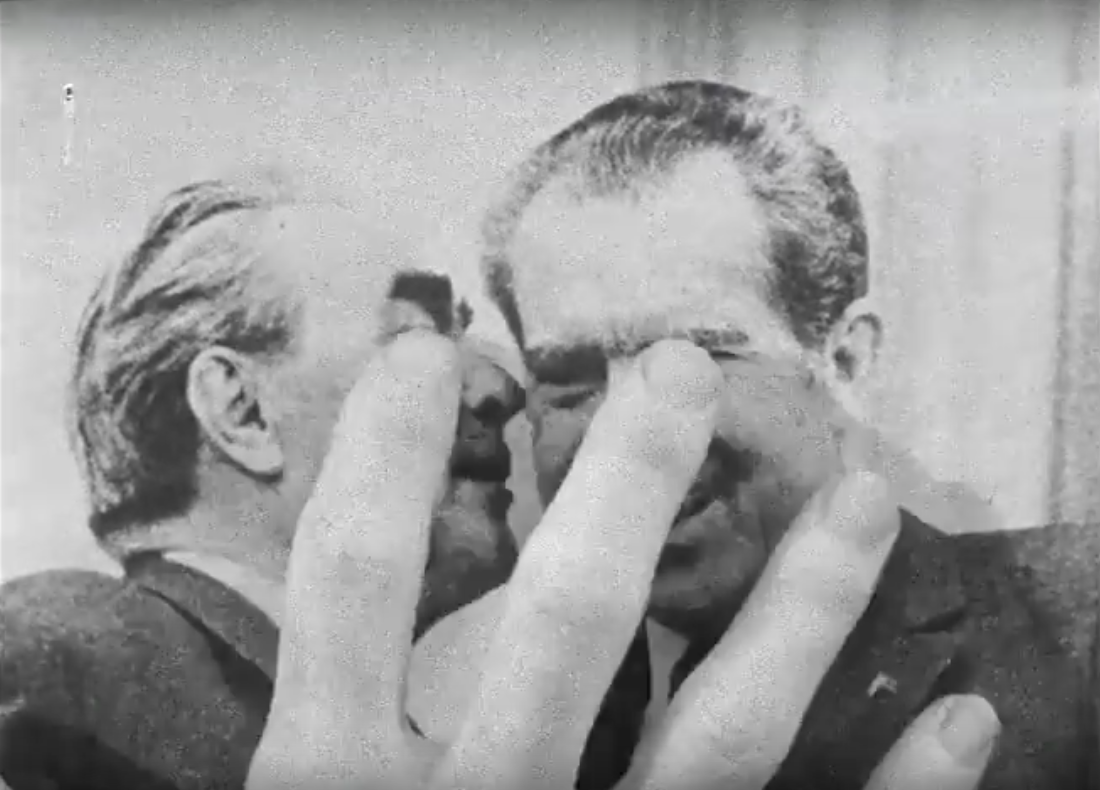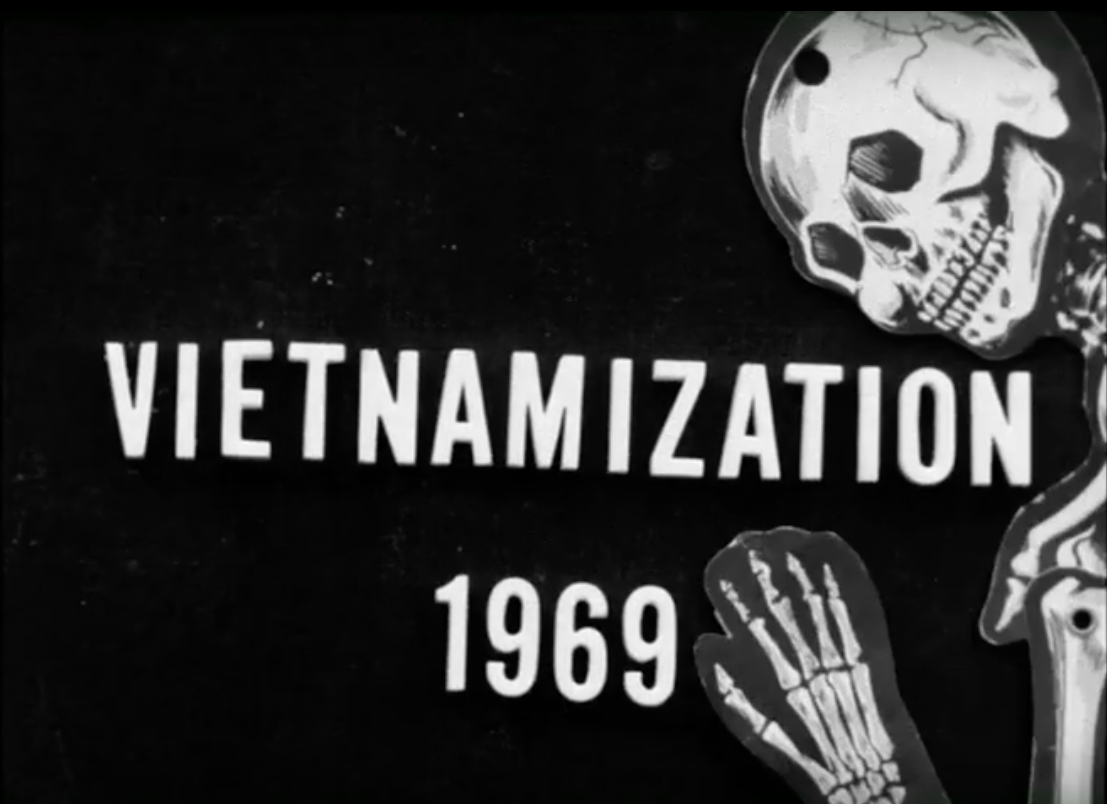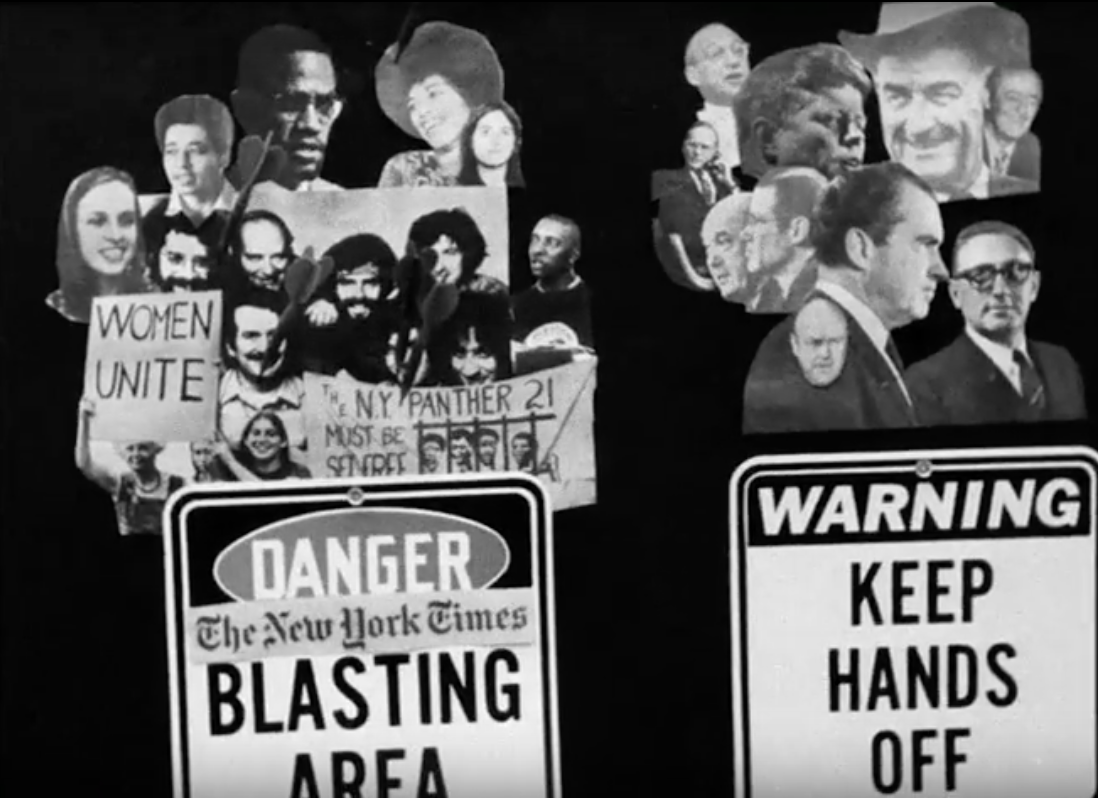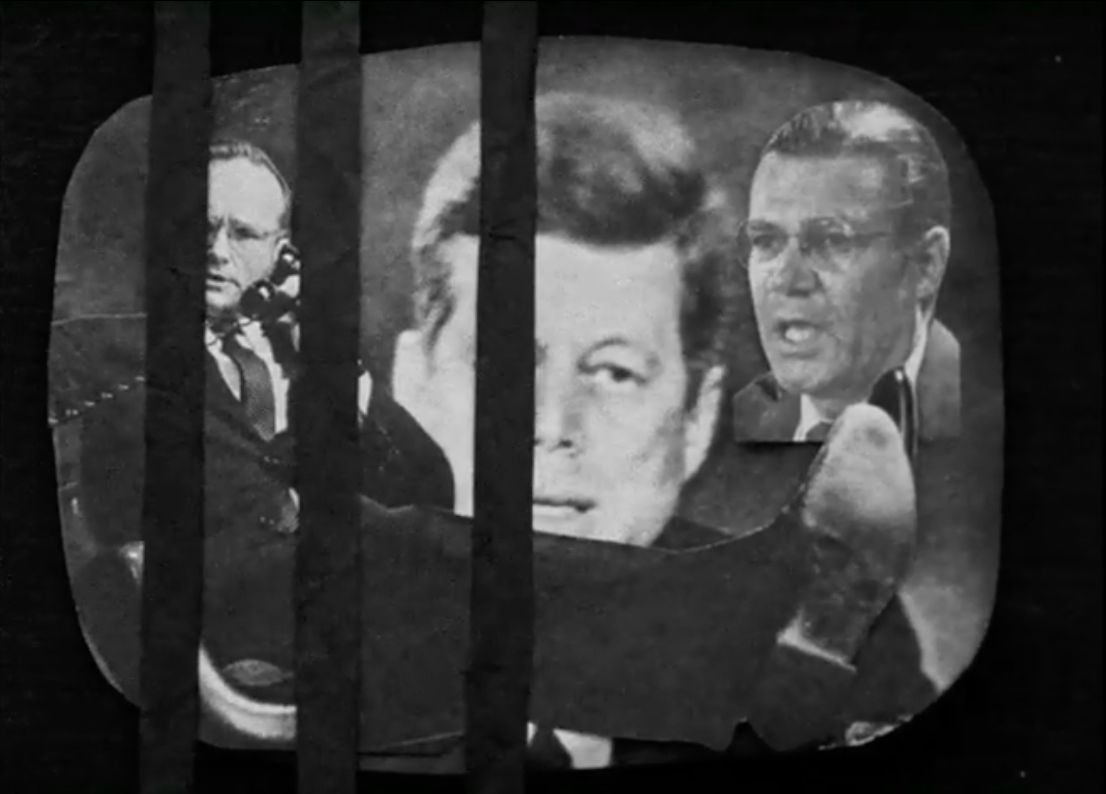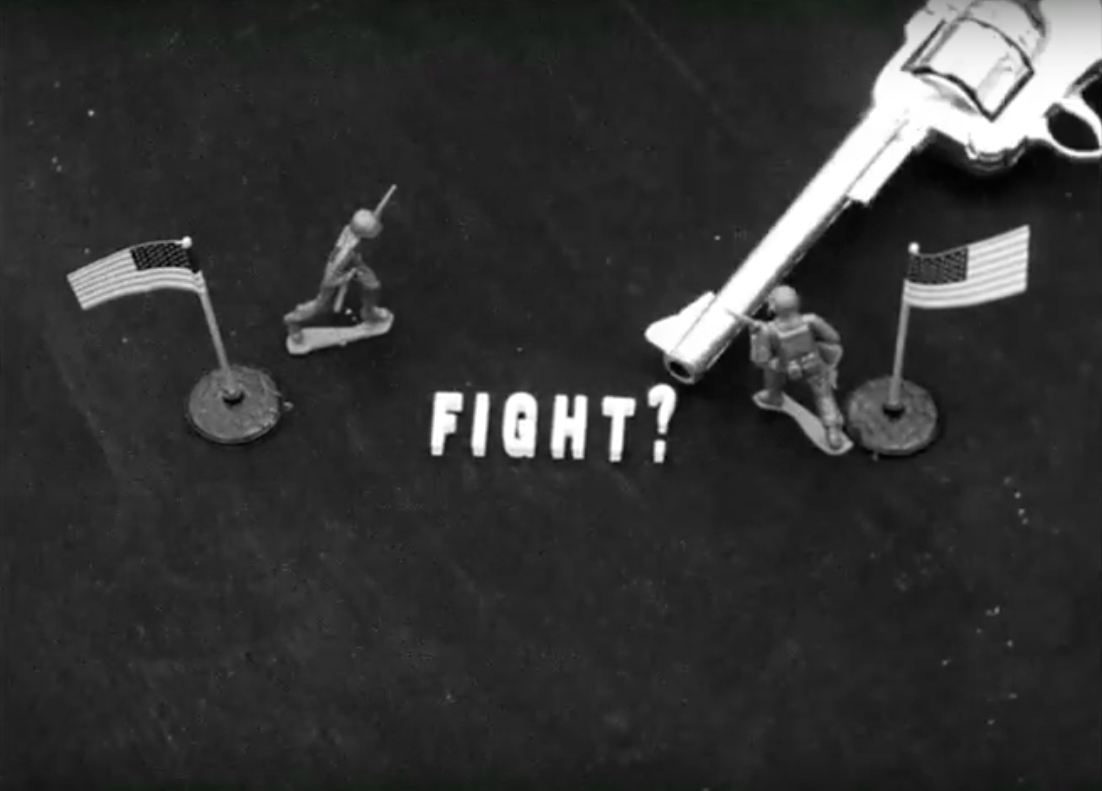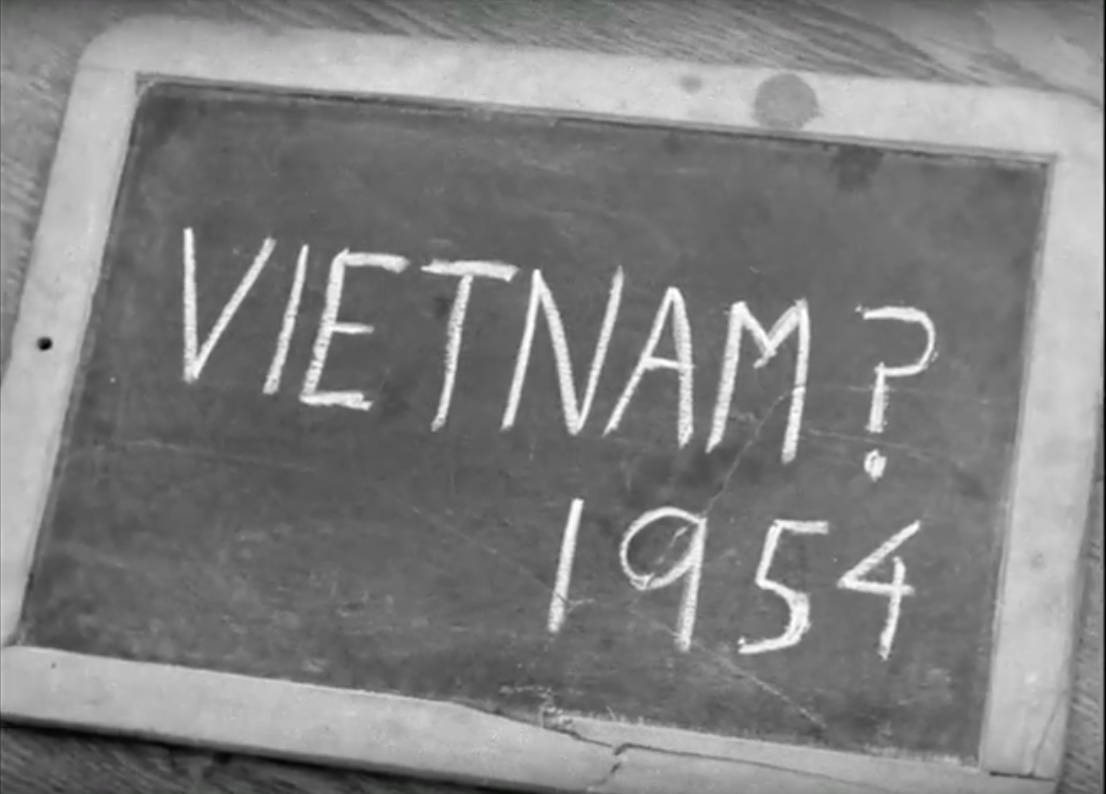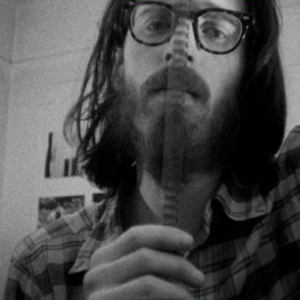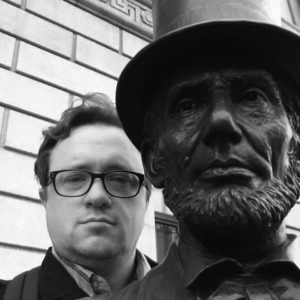Apr 9, 2017 at 7:30 pm
Nothing Is Too Small for a Revolution: Anarchist Films by Nick Macdonald
Conversation with Nick Macdonald, Michael W. Phillips Jr. and Noah Isenberg after the screening.
In the early to mid 1970s, Nick Macdonald made several political essay films in and around his New York apartment. Influenced by anarchism, the films are unique, personal projects that eschew traditional documentary footage in favor of a sort of bricolage technique in which Macdonald used narration, newspaper cutouts, knickknacks, photographs, guerrilla skits, and wordplay on a letter board to explore such topics as the Vietnam War, Palestine, the Attica uprising, women’s liberation, and the antiwar movement. These films are not historical artifacts but surprisingly relevant object lessons in using personal art to address current political issues. Films will be screened from Macdonald’s own 16mm prints, along with a few from the MOMA Archive.
We are excited to be co-presenting this program with Chicago’s South Side Projections. Director/Founder Michael Phillips who researched and organized this program for a screening in Chicago with the Logan Center For The Arts and the Chicago Underground Film Festival will video conference in to introduce the program. Scholar and critic, Noah Isenberg will be in attendance to moderate a discussion with Macdonald after the screening.
Program
Break Out!
25 min. 1970, 16mm
A self-criticism, self-analysis” in which Macdonald struggles with his own status as a self-declared “armchair radical.” Wondering what real effect making films and attending demonstrations can have, he wrestles with the idea of violence and examines his own excuses (protecting his family, protecting his life) for not “being radical as opposed to talking radical.” In a section that introduces the letter board and bricolage technique that would become so prominent in his filmography, he lays out a radical 12-point program for the attainment of a more decent society; a coda proposes a halfway point between armchair radicalism and bomb-throwing
No More Leadershit
4 min. 1971, 16mm
Macdonald lays out his theory of anarchy—in its purest sense of a rejection of hierarchy—in this seriocomic short he argues that protesters, police, and soldiers alike are not the perpetrators of violence but are victims at the hands of leaders.
The Liberal War
33 min. 1972, 16mm
Macdonald’s magnum opus is staged as an attempt to explain the Vietnam War to members of a future anarchist society. Along with a voiceover that emphasizes that this story is just “my own view, the way I see it” with visual wordplay on a letter board, Macdonald’s bricolage technique uses odds and ends lying around his apartment to literalize the metaphors of invasion and occupation: the puppet government of South Vietnam is a sock puppet with Ngo Dihn Diem’s face glued onto it; dominoes and then plastic army men are set up and knocked over on a map of Vietnam; Macdonald’s own Harvard diploma is cut into paper dolls to illustrate the prevalence of the war’s architects at that esteemed institution. The film rejects the widely held belief that the war came about through a series of accidents and well-intentioned but misguided decisions by the “best and brightest,” arguing instead that it was the necessary outcome of American exceptionalism.
Our Common Senses
6 min. 1976, 16mm
one of two films of Macdonald’s about women’s liberation, in which he explores what an anti-hierarchical philosophy looks like in interpersonal relationships.
Acts of Revolution
6 min. 1976, 16mm
Concluding that “nothing is too small for a revolution”, Macdonald proposes that simple things like listening, reading to one’s children, and crying can be revolutionary acts.
72 min
After making three silent comedies in college, and a documentary about refugees from the Spanish Civil War, Nick Macdonald made seven political (essay) films from 1970 to 1976. These films have been shown at Museum of Modern Art (MoMA), Whitney Museum of American Art, Brooklyn Academy of Music, and various university and leftist forums. He also filmed two short color movies on Cape Cod. Made on extremely low budgets with a homemade quality to them, his films don’t rely on documentary footage but, instead, use photographs and guerrilla skits, often taking place within his apartment. Macdonald’s book, In Search of La Grande Illusion, on Jean Renoir’s classic film, was published in 2014 by McFarland & Co. In 2015, MoMA accepted his films for their archives and they are currently being processed by the museum.
Michael W. Phillips Jr. is the founder and director of South Side Projections, a nonprofit organization that presents film screenings and discussions at locations across Chicago’s south side. He was the founding director of the Black Cinema House, the founding film programmer of the Chicago International Movies & Music Festival, the cinematheque and videotheque manager of Facets Multi-media, and the last director of the Bank of America Cinema. He has served on juries for the Chicago Underground Film Festival, the Reeling Film Festival, the Chicago International Children’s Film Festival, and the Chicago International Film Festival. He also makes performance videos and found-footage music videos for Chicago-based musicians. You can call him Mike.
Noah Isenberg is Professor of Culture and Media at the New School’s Eugene Lang College of Liberal Arts, in New York City, where he also directs the Screen Studies program. The author, most recently, of We’ll Always Have ‘Casablanca’: The Life, Legend, and Afterlife of Hollywood’s Most Beloved Movie, published by W.W. Norton in February 2017 (and in November 2017 by Faber & Faber in the UK and by Európa, in Hungarian translation, in Hungary). His other books include: Edgar G. Ulmer: A Filmmaker at the Margins (California, 2014), which the New York Times hailed as “a page turner of a biography” and Huffington Post selected among its Best Film Books of 2014; Detour (British Film Institute, 2008), a book-length study of Ulmer’s acclaimed low-budget film noir; and, as editor, Weimar Cinema: An Essential Guide to Classic Films of the Era (Columbia, 2009), which was selected as a Choice Outstanding Academic Title. His introduction to Vicki Baum’s bestselling novel of 1929 is now out from the New York Review of Books Classics. In support of his work, he has been awarded grants and fellowships from the National Endowment for the Humanities, the Fulbright Commission, the International Research Center for Cultural Studies in Vienna, and the Alexander von Humboldt Foundation. He serves as book review editor of Film Quarterly, is a fellow of the New York Institute for the Humanities, and was awarded a 2015-2016 NEH Public Scholar research grant. His writing has appeared in such diverse publications as: The Nation, The New Republic, The Daily Beast, Times Literary Supplement, Bookforum, New York Review Daily, Film Comment, The Paris Review Daily, Los Angeles Review of Books, The Criterion Collection, The Threepenny Review, Film Quarterly, New German Critique, Partisan Review, Raritan, Wall Street Journal and the New York Times. From 1995-2004, he taught at Wesleyan University, in Connecticut, and has been a visiting professor at the University of Pennsylvania and at Dartmouth College.
Program notes courtesy of South Side Projections
Presented With

South Side Projections


